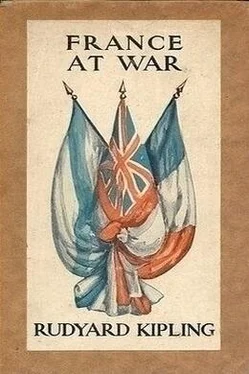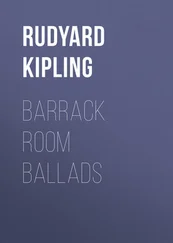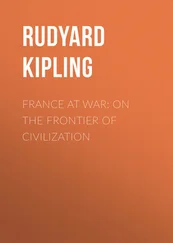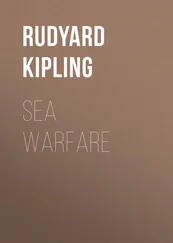Rudyard Kipling - France at War
Здесь есть возможность читать онлайн «Rudyard Kipling - France at War» весь текст электронной книги совершенно бесплатно (целиком полную версию без сокращений). В некоторых случаях можно слушать аудио, скачать через торрент в формате fb2 и присутствует краткое содержание. Год выпуска: 2014, Издательство: epubBooks Classics, Жанр: Биографии и Мемуары, prose_military, на английском языке. Описание произведения, (предисловие) а так же отзывы посетителей доступны на портале библиотеки ЛибКат.
- Название:France at War
- Автор:
- Издательство:epubBooks Classics
- Жанр:
- Год:2014
- ISBN:нет данных
- Рейтинг книги:4 / 5. Голосов: 1
-
Избранное:Добавить в избранное
- Отзывы:
-
Ваша оценка:
- 80
- 1
- 2
- 3
- 4
- 5
France at War: краткое содержание, описание и аннотация
Предлагаем к чтению аннотацию, описание, краткое содержание или предисловие (зависит от того, что написал сам автор книги «France at War»). Если вы не нашли необходимую информацию о книге — напишите в комментариях, мы постараемся отыскать её.
and
.
France at War — читать онлайн бесплатно полную книгу (весь текст) целиком
Ниже представлен текст книги, разбитый по страницам. Система сохранения места последней прочитанной страницы, позволяет с удобством читать онлайн бесплатно книгу «France at War», без необходимости каждый раз заново искать на чём Вы остановились. Поставьте закладку, и сможете в любой момент перейти на страницу, на которой закончили чтение.
Интервал:
Закладка:
Again a big plume rose; and again the lighter shells broke at their appointed distance beyond it. The smoke died away on that stretch of trench, as the foam of a swell dies in the angle of a harbour wall, and broke out afresh half a mile lower down. In its apparent laziness, in its awful deliberation, and its quick spasms of wrath, it was more like the work of waves than of men; and our high platform's gentle sway and glide was exactly the motion of a ship drifting with us toward that shore.
"The usual work. Only the usual work," the officer explained. "Sometimes it is here. Sometimes above or below us. I have been here since May."
A little sunshine flooded the stricken landscape and made its chemical yellow look more foul. A detachment of men moved out on a road which ran toward the French trenches, and then vanished at the foot of a little rise. Other men appeared moving toward us with that concentration of purpose and bearing shown in both Armies when—dinner is at hand. They looked like people who had been digging hard.
"The same work. Always the same work!" the officer said. "And you could walk from here to the sea or to Switzerland in that ditch—and you'll find the same work going on everywhere. It isn't war."
"It's better than that," said another. "It's the eating–up of a people. They come and they fill the trenches and they die, and they die; and they send more and those die. We do the same, of course, but—look!"
He pointed to the large deliberate smoke–heads renewing themselves along that yellowed beach. "That is the frontier of civilization. They have all civilization against them —those brutes yonder. It's not the local victories of the old wars that we're after. It's the barbarian—all the barbarian. Now, you've seen the whole thing in little. Come and look at our children."
SOLDIERS IN CAVES
We left that tall tree whose fruits are death ripened and distributed at the tingle of small bells. The observer returned to his maps and calculations; the telephone–boy stiffened up beside his exchange as the amateurs went out of his life. Some one called down through the branches to ask who was attending to—Belial, let us say, for I could not catch the gun's name. It seemed to belong to that terrific new voice which had lifted itself for the second or third time. It appeared from the reply that if Belial talked too long he would be dealt with from another point miles away.
The troops we came down to see were at rest in a chain of caves which had begun life as quarries and had been fitted up by the army for its own uses. There were underground corridors, ante–chambers, rotundas, and ventilating shafts with a bewildering play of cross lights, so that wherever you looked you saw Goya's pictures of men–at–arms.
Every soldier has some of the old maid in him, and rejoices in all the gadgets and devices of his own invention. Death and wounding come by nature, but to lie dry, sleep soft, and keep yourself clean by forethought and contrivance is art, and in all things the Frenchman is gloriously an artist.
Moreover, the French officers seem as mother–keen on their men as their men are brother–fond of them. Maybe the possessive form of address: "Mon general," "mon capitaine," helps the idea, which our men cloke in other and curter phrases. And those soldiers, like ours, had been welded for months in one furnace. As an officer said: "Half our orders now need not be given. Experience makes us think together." I believe, too, that if a French private has an idea—and they are full of ideas—it reaches his C. 0. quicker than it does with us.
THE SENTINEL HOUNDS
The overwhelming impression was the brilliant health and vitality of these men and the quality of their breeding. They bore themselves with swing and rampant delight in life, while their voices as they talked in the side–caverns among the stands of arms were the controlled voices of civilization. Yet, as the lights pierced the gloom they looked like bandits dividing the spoil. One picture, though far from war, stays with me. A perfectly built, dark–skinned young giant had peeled himself out of his blue coat and had brought it down with a swish upon the shoulder of a half–stripped comrade who was kneeling at his feet with some footgear. They stood against a background of semi–luminous blue haze, through which glimmered a pile of coppery straw half covered by a red blanket. By divine accident of light and pose it St. Martin giving his cloak to the beggar. There were scores of pictures in these galleries—notably a rock–hewn chapel where the red of the cross on the rough canvas altar–cloth glowed like a ruby. Further inside the caves we found a row of little rock–cut kennels, each inhabited by one wise, silent dog. Their duties begin in at night with the sentinels and listening–posts. "And believe me," a proud instructor, "my fellow here knows the difference between the noise of our shells and the Boche shells."
When we came out into the open again there were good opportunities for this study. Voices and wings met and passed in the air, and, perhaps, one strong young tree had not been bending quite so far across the picturesque park–drive when we first went that way.
"Oh, yes," said an officer, "shells have to fall somewhere, and," he added with fine toleration, "it is, after all, against us that the Boche directs them. But come you and look at my dug–out. It's the most superior of all possible dug–outs."
"No. Come and look at our mess. It's the Ritz of these parts." And they joyously told how they had got, or procured, the various fittings and elegancies, while hands stretched out of the gloom to shake, and men nodded welcome and greeting all through that cheery brotherhood in the woods.
WORK IN THE FIELDS
The voices and the wings were still busy after lunch, when the car slipped past the tea–houses in the drive, and came into a country where women and children worked among the crops. There were large raw shell holes by the wayside or in the midst of fields, and often a cottage or a villa had been smashed as a bonnet–box is smashed by an umbrella. That must be part of Belial's work when he bellows so truculently among the hills to the north.
We were looking for a town that lives under shell–fire. The regular road to it was reported unhealthy—not that the women and children seemed to care. We took byways of which certain exposed heights and corners were lightly blinded by wind–brakes of dried tree–tops. Here the shell holes were rather thick on the ground. But the women and the children and the old men went on with their work with the cattle and the crops; and where a house had been broken by shells the rubbish was collected in a neat pile, and where a room or two still remained usable, it was inhabited, and the tattered window–curtains fluttered as proudly as any flag. And time was when I used to denounce young France because it tried to kill itself beneath my car wheels; and the fat old women who crossed roads without warning; and the specially deaf old men who slept in carts on the wrong side of the road! Now, I could take off my hat to every single soul of them, but that one cannot traverse a whole land bareheaded. The nearer we came to our town the fewer were the people, till at last we halted in a well–built suburb of paved streets where there was no life at all….
A WRECKED TOWN
The stillness was as terrible as the spread of the quick busy weeds between the paving–stones; the air smelt of pounded mortar and crushed stone; the sound of a footfall echoed like the drop of a pebble in a well. At first the horror of wrecked apartment–houses and big shops laid open makes one waste energy in anger. It is not seemly that rooms should be torn out of the sides of buildings as one tears the soft heart out of English bread; that villa roofs should lie across iron gates of private garages, or that drawing–room doors should flap alone and disconnected between two emptinesses of twisted girders. The eye wearies of the repeated pattern that burst shells make on stone walls, as the mouth sickens of the taste of mortar and charred timber. One quarter of the place had been shelled nearly level; the facades of the houses stood doorless, roofless, and windowless like stage scenery. This was near the cathedral, which is always a favourite mark for the heathen. They had gashed and ripped the sides of the cathedral itself, so that the birds flew in and out at will; they had smashed holes in the roof; knocked huge cantles out of the buttresses, and pitted and starred the paved square outside. They were at work, too, that very afternoon, though I do not think the cathedral was their objective for the moment. We walked to and fro in the silence of the streets and beneath the whirring wings overhead. Presently, a young woman, keeping to the wall, crossed a corner. An old woman opened a shutter (how it jarred!), and spoke to her. The silence closed again, but it seemed to me that I heard a sound of singing—the sort of chant one hears in nightmare–cities of voices crying from underground.
Читать дальшеИнтервал:
Закладка:
Похожие книги на «France at War»
Представляем Вашему вниманию похожие книги на «France at War» списком для выбора. Мы отобрали схожую по названию и смыслу литературу в надежде предоставить читателям больше вариантов отыскать новые, интересные, ещё непрочитанные произведения.
Обсуждение, отзывы о книге «France at War» и просто собственные мнения читателей. Оставьте ваши комментарии, напишите, что Вы думаете о произведении, его смысле или главных героях. Укажите что конкретно понравилось, а что нет, и почему Вы так считаете.












